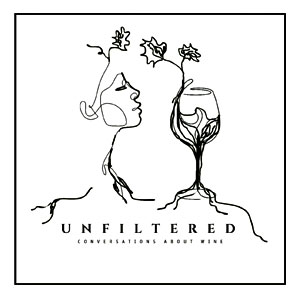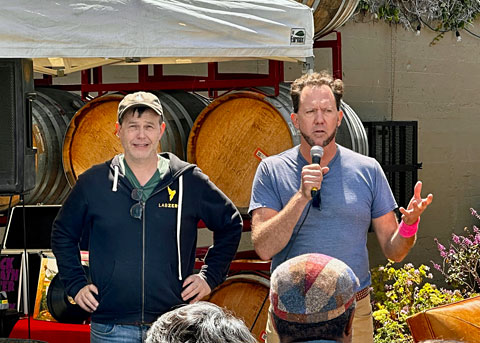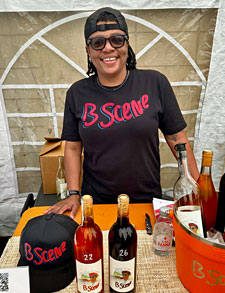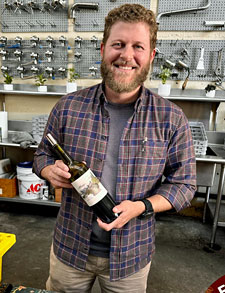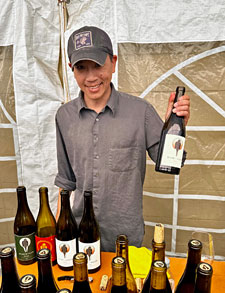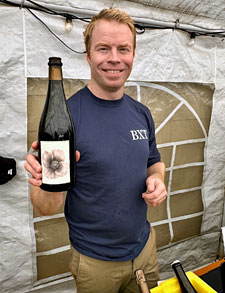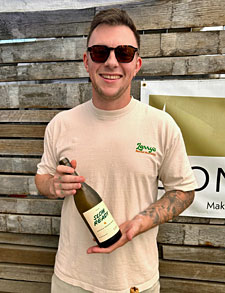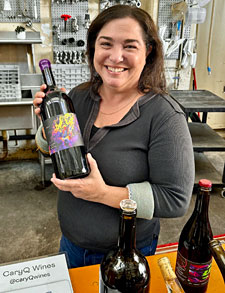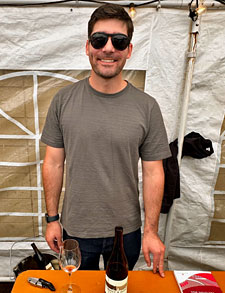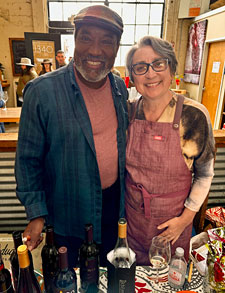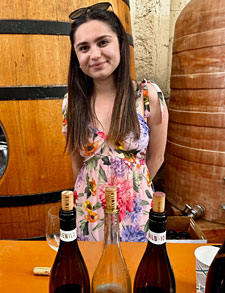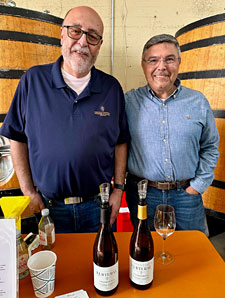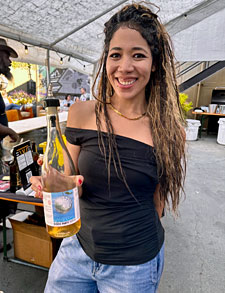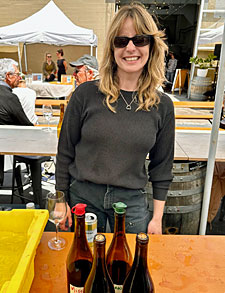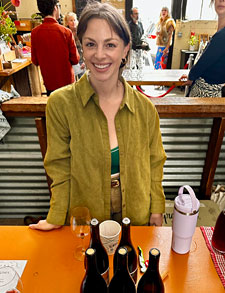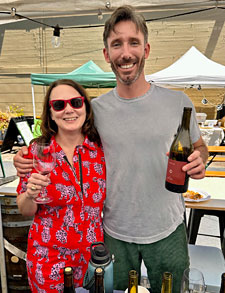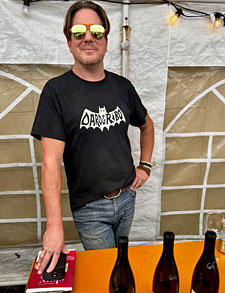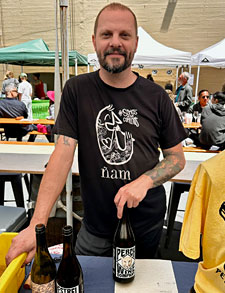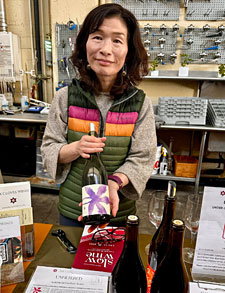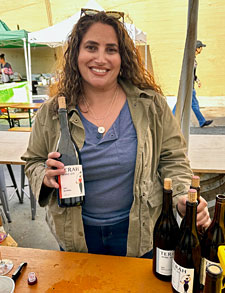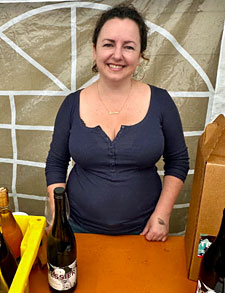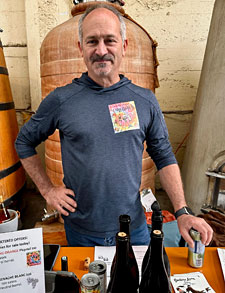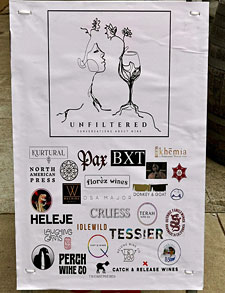Unfiltered: Conversations About Wine – July 26th, 2025
Report on the first Unfiltered: Conversations About Wine event, held on Saturday, July 26th, 2025, at Donkey & Goat Winery in Berkeley, California. The event featured a tasting of low-intervention wines from throughout Northern California and three wine discussion panels.
Unfiltered is a project of Donkey & Goat Winery, and is headed up by Andrew Sullivan along with winery co-founder Jared Brandt. It’s an extension of their regular Thursday Sip & Savor series, where guest winemakers have been invited to pour their wines at Donkey & Goat. The Thursday tasting series will be known as Unfiltered going forward – the goal of the series is “to educate and connect our community by exploring the creative culture of our local low-intervention wines and the people that make them.”
The Unfiltered event really did center around "Conversations About Wine." The discussion panels featured vintners, importers and retailers, climate experts, and others, affording the opportunity for panelists to share opinions with one another as well as with attendees. And since the winemakers were on hand for nearly every producer pouring at the tasting, it gave attendees a chance to ask questions and connect with them, something that’s not true at some public tasting events.
Panel Discussion:
One of the key attractions of the Unfiltered event was the inclusion of three panel discussions that took place during the afternoon. Although all three of them looked like they would be very interesting, I decided I would miss too much of the walk-around tasting if I attended all of them so I skipped the first one and went to the last two. I won’t get into too much detail about the panel discussions here, and I encourage everyone who would be interested in hearing them to check out Matt Wood’s Indie Wine Podcast (available from several podcast sources) to listen to them in full – he’ll have all three of them available to hear.
|
| Jared Brandt and Andrew Sullivan of Donkey & Goat |
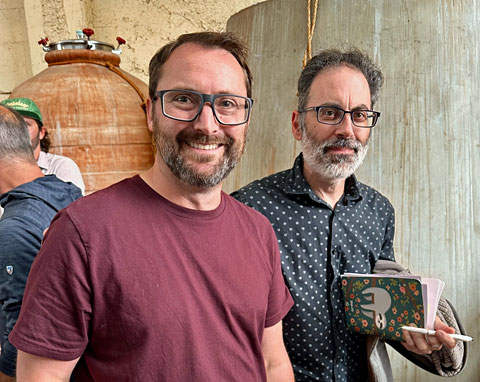 |
| Matt Wood of Indie Wine Podcast and Pietro Buttitta of Prima Materia |
The discussion that I missed was titled “Implications of Climate Adaptation on Low-Intervention Winemaking Practices.” It was moderated by Darek Trowbridge and included panelists Dr. Whendee Silver, Dr. Tibisay Perez, Dr. Kaan Kurtural, and Matt Niess.
I attended the second panel, which was titled “What Is Terroir, Really? And Does It Even Matter?” – moderated by Jared Brandt, the panelists were Kristie Tacey, Dr. Kaan Kurtural, Darek Trowbridge, Shaunt Oungoulian, and William Allen. The discussion started with views on how soil impacts terroir, and Darek mentioned that he feels terroir mainly has three aspects – soil, climate, and microbiology. The panel talked about how some winemaking practices can do much to mask terroir, including skin-fermenting white grape varieties and carbonic fermentation. They also pointed out that the concept of terroir in wine is largely tied to tradition, and with California having a much shorter wine history than Europe, we don’t have as clear a sense of terroir in California wines. Jared asked whether other things besides wine tended to show terroir, and coffee was the consensus answer. The panelists were also asked which wine regions they felt were most terroir-driven, and Chablis was the most common answer across the board, with Alsace and Piemonte receiving mentions as well. Overall this was a very enjoyable discussion. I’m not sure if it was decided how much terroir in wine really matters, though I feel that all of the panelists agreed that displaying terroir in a wine is a goal worth pursuing.
The final discussion panel was titled “Does Natural Wine Romanticize Flaws?” This one was moderated by Louie Seamus, with panelists Clark Smith, Erin Coburn, Keven Clancy, and Eric Danch. Louie had each panelist discuss a particular wine flaw – Clark talked about mousiness, Erin covered brettanomyces, Keven discussed volatile acidity, and Eric finished up with reduction and oxidation. Of course not everyone agrees that these things are actually flaws in wine, especially if they’re present to a limited degree, though I think the panel was in agreement that mousiness is generally the most off-putting of the four flaws that were discussed. Eric poured us a Serbian wine to demonstrate that some wines with what are commonly felt to be flaws can be delicious. A couple of panelists noted that what is sometimes seen as “benign neglect” in winemaking is really just sloppy winemaking and too often leads to flaws that could and should have been avoided. It was mentioned that some flaws will become less apparent as a wine is given time to develop in bottle, but that getting wines out into the market early for needed cash flow sometimes means that they’re not given the time they may require. The panelists also talked about how some wine consumers equate natural wine with flawed wine and that they can turn away from natural wines that don’t show obvious flaws, believing they’re not sufficiently natural. This was the livelier of the two panels I attended, with differing views from various panelists coming out more. I don’t know that there was any overall agreement on whether natural wine romanticizes flaws, though the panelists agreed that it accepts them more readily than “conventional” wine, and that this can sometimes be for the better and sometimes not.
I should note that several wines were poured during each of the two panel discussions I attended, though I didn’t take notes on them. I did note that particularly enjoyed the Donkey & Goat 2023 Conzelman Vineyard Chardonnay from Anderson Valley at the second panel, and the Maurer wine from Serbia that Eric Danch presented during the final panel – I believe it was the 2023 “Crazy Lud” White.
Both of the panel discussions I attended were quite interesting and educational, and the moderators of each one did a good job of keeping the discussions on point.
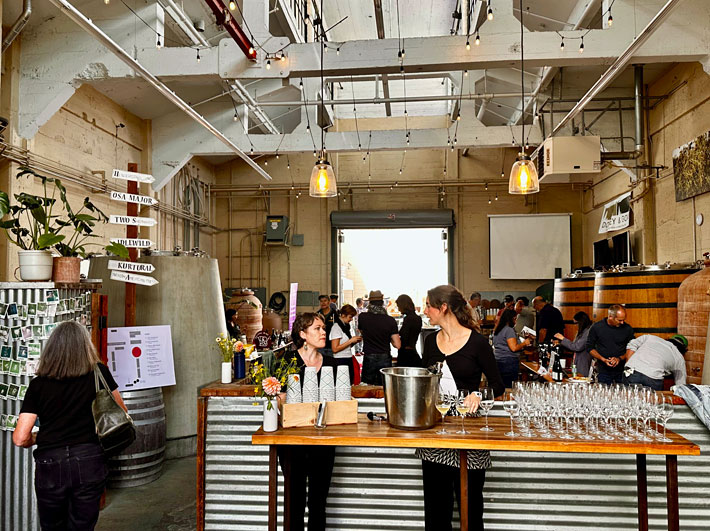 |
Some Favorites |
OVERALL FAVORITES
Whites, Rosés, and Sparkling
Belong 2024 “Public Holiday” El Dorado County Vermentino
BXT 2024 Bell Summe Vineyard Sparkling Wine (pre-release)
Cary Q 2023 Fenaughty Vineyard Picpoul Blanc
Catch & Release 2023 “Slow Ready” San Benito County Chenin Blanc
Donkey & Goat 2023 Conzelman Vineyard Chardonnay
Idlewild 2019 Lost Hills Ranch Cortese
Osa Major 2023 “Gold in the Hills” Sémillon
Outis 2022 Rodnick Farm Chenin Blanc
Perch 2024 Fiddletown Sauvignon Blanc
Six Cloves 2023 Linda Vista Vineyard Chardonnay
Reds
Belong 2023 “Sierra Soul” El Dorado County Mourvèdre
Blade & Talon 2023 Siletto Vineyard Ruchè
Donkey & Goat 2023 Dommen Vineyard Pinot Meunier
Henderson’s Harvest Khēmia 2023 Primitivo
Miscreant 2023 “Good Work” Rodnick Farm Pinot Noir
Osa Major 2023 Poor Ranch Syrah
Pax 2022 Nellessen Vineyard Syrah
Perch 2023 Fiddletown Barbera
Six Cloves 2023 Buf-Wehr Ranch Pinot Noir
Terah 2023 Shake Ridge Ranch Barbera
Tessier 2021 Saveria Pinot Noir
Two Shepherds 2022 Aria & Austin’s Vineyard Grenache Noir
Others of Note
B Scene 2024 Suisun Valley Skin-Fermented Malvasia
Belong 2024 “Sunshower” El Dorado County Carbonic Red
Blade & Talon 2023 “Lucky Rabbit” Circle S Vineyards Red
BXT 2023 “California Immersion” Sparkling Wine
Cary Q 2023 “Crazy/Perfect” Fenaughty Vineyard Cinsault
Henderson’s Harvest Khēmia 2023 “Vintner’s Mélange” Rosé
Idlewild 2023 “Flora & Fauna” Rosé
Kurtural 2024 Slayback Vineyard Chardonnay
Laughing Gems 2024 “Disco Party” Paicines Ranch Grenache
Osa Major 2023 Somers Vineyard Mission
Outis 2023 San Benito County Pinot Noir
Pax 2023 “Sonoma Hillsides” Syrah
Perch 2023 “Kestrel” Lodi Red Blend
Terah 2024 “Vino Rosso” San Benito County Carbonic Red
Tessier 2023 “Day Dreaming” Red Blend
Two Shepherds 2024 “Natty Pets” Sparkling Orange Wine
|
|
General Tasting impressions:
The tasting portion of Unfiltered allowed attendees to taste wines from a well-chosen cross-section of low-intervention producers from all over Northern California. There were 28 producers that poured their wines at Unfiltered, and as noted above, nearly all of them were represented by the winemakers themselves. The tasting was set up nicely, with tables both indoors and in a shaded outdoor area, with ample space at each winery table and plenty of room for attendees to circulate. There was good signage to direct attendees to tables, though the one thing I might have done differently would be to arrange winery tables alphabetically to make them a bit easier to find. There was a good crowd on hand but even so, there were only a couple of times I had to wait to step up to a winery table. Unlike at many tastings, the wines being poured at the event were available to buy directly from each producer.
In addition to the wineries, there were three local food purveyors – All Pau, Rucolina, and Squabisch – offering a variety of options. I was tempted to try something from them but I stayed focused on the wines and missed out on the food, though it all smelled delicious. There was also a DJ on hand – the music featured a great mixture of styles and it was not overly loud, something I’ve found to be an issue at some other tasting events. All in all, everything seemed to run very smoothly, thanks to the Donkey & Goat staff and a crew of volunteer helpers. For a first-time event, Unfiltered was extremely well-organized. The printed list of wines being poured by each producer that attendees received (along with a small notebook and pen for taking notes) is something that I wish that more wine events would provide – good job by the Unfiltered team!
There was a generous four-hour consumer tasting at Unfiltered, with an additional hour for trade and media. Even taking a couple of hours out of my wine-tasting time to go to the two discussion panels I attended, I still was able to get to 20 winery tables to taste. Most producers poured two or three wines, with just a couple of the ones I checked out pouring as many as four, and that helped to keep me moving along to taste at more winery tables. In some cases I skipped wines that I’d already tasted recently, including some that I’d liked a lot at a previous tasting. As is often the case, I missed tasting from a few producers I’d really intended to visit, and though I stuck mainly with winemakers I already knew, I did manage to try out wines from a few I wasn’t familiar with.
In getting to as many winery tables as I did in the time I allotted for tasting, I didn’t write down as detailed tasting impressions as I generally do, so I didn’t include separate notes for each producer this time. I do want to single out a handful of my very top wines of the tasting (they’re included in my Favorites list below as well) – these included Blade & Talon 2023 Siletto Vineyard Ruchè from San Benito County, BXT 2024 Bell Summe Vineyard Sparkling Wine (pre-release) from Russian River Valley, Cary Q 2023 Fenaughty Vineyard Picpoul Blanc from El Dorado County, Osa Major 2023 Poor Ranch Syrah from Mendocino County, Pax 2022 Nellessen Vineyard Syrah from the Sonoma Coast, and Perch 2024 Fiddletown Sauvignon Blanc from Amador County. In addition to these six producers, others that poured particularly strong wine lineups included: Belong, Six Cloves, and Terah.
This was a strong showing across the board by the wineries pouring at Unfiltered, and I tasted at least one standout wine at every table to visited. I do feel that the event format helped foster greater connection and interaction between vintners and consumers than at many other wine tastings. Unfiltered was one of the best wine events I’ve been to this year, and I can definitely recommend that you consider attending future Unfiltered events.
|


